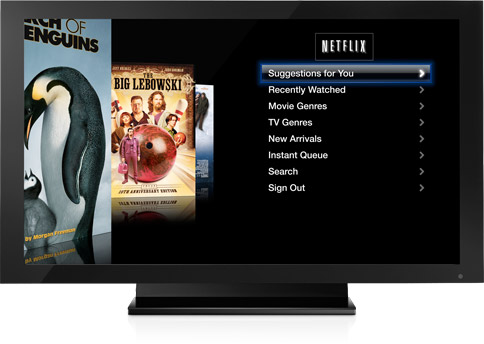Following last week’s speculation about Apple ordering 12 petabytes of storage for video delivery through the iTunes Store, Silicon Alley Insider points to a report from analyst Peter Misek who’s claiming Apple will soon launch a “new far reaching cloud-based service” focused on video and compatible with a variety of devices, including iPhones, iPads, and the Apple TV. Several rumors and theories in the past tried to give some sense to the massive data center Apple has built in Maiden, North Carolina, but Misek’s report goes on to mention details of this online video service that should rival Netflix on iOS devices and allow users to stream any kind of content through a subscription system – likely based on iTunes.
Misek thinks the data center is clearly meant for video because of its size, and a new one could soon be built next to it – with additional ones following in the next months in the United States and Europe. Indeed, in the past months many suggested Apple could be working on a parallel building in Maiden based on a unique design tailored to Apple’s needs and iTunes customers. Misek believes the first data center might already be operational, but it is worth remembering that it was rumored the facility was set for a Spring 2011 launch with iTunes and (new) MobileMe services.
Noting that several cable companies recently complained over the consumption of TV content on third-party iPad apps, Misek speculates these same companies might be involved with Apple in negotiating the terms for a new service based on iTunes.
We believe Apple has learned much from having Netflix on the Apple TV and we cannot help but feel Apple will try to improve on this model somehow. So how does Apple convince Hollywood and other content creators to license it? In our view, the best way to do that would be the model they use for App developers: let them take the vast majority of the revenue while you use the content to drive device sales and monetize it that way. We are huge fans of iTunes, but that cannot be it from Apple.
The obvious advantage of a cloud service tied to iTunes would be the compatibility with Apple’s iOS devices (including the Apple TV), the web and Macintosh computers – all of them would be able to stream content, and perhaps share it using Apple AirPlay technology. So while we heard in the past Apple could license AirPlay for video to TV makers, Misek notes that the company might be working on its own TV device that fetches content from the Internet and iTunes, thus “cutting the cable”. One big doubt remains, however, among Apple observers and tech pundits: why would Apple release a Netflix alternative when the official Netflix application has proved to be a success on iOS devices and comes pre-installed on the Apple TV? Looking at the big picture, it is possible that Apple wants to disrupt online video delivery, cable companies and services like Netflix itself by deploying its own solution – pretty much like they did with music years ago.


